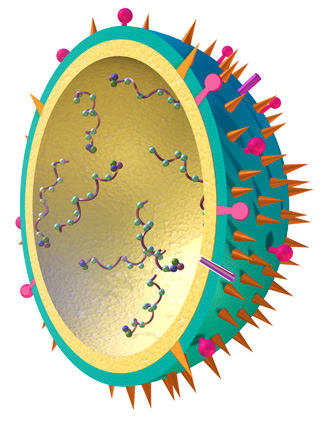7.346 Virus-host Interactions in Infectious Diseases, Spring 2013
Author(s)
Sanyal, Sumana; Ashour, Joseph
DownloadThis package contains the same content as the online version of the course, except for the audio/video materials. (7.838Mb)
Terms of use
Metadata
Show full item recordAbstract
Co-evolution and adaptation between viruses and humans are often portrayed as a zero-sum biological arms race. Viruses enter host cells equipped with an array of mechanisms to evade the host defense responses and replicate. The rapid rate of mutation of viruses permits evolution of various methodologies for infection, which in turn drive development of non-specific but highly effective host mechanisms to restrict infection. This class will discuss the varied solutions each side has developed as a means for survival. We will use examples drawn from human disease-causing pathogens that contribute seriously to the global health burden, including HIV, influenza and dengue virus. Primary research papers will be discussed to help students learn to pose scientific questions and design and conduct experiments to answer the questions and critically interpret data. This course is one of many Advanced Undergraduate Seminars offered by the Biology Department at MIT. These seminars are tailored for students with an interest in using primary research literature to discuss and learn about current biological research in a highly interactive setting. Many instructors of the Advanced Undergraduate Seminars are postdoctoral scientists with a strong interest in teaching.
Date issued
2013-06Department
Massachusetts Institute of Technology. Department of BiologyOther identifiers
7.346-Spring2013
7.346
IMSCP-MD5-a657ada095e8eecf84a2ae1b66c691b9
Keywords
virus, host, infection, protein-protein interactions, host mimicry, intra-cellular trafficking, host-cell machinery, signaling pathways, antiviral proteins, HIV, influenza, dengue virus, biotechnology, vaccine development, host sensors, IFN production, Secreted IFN, filoviruses, hCMV, IFITM proteins
Collections
The following license files are associated with this item: